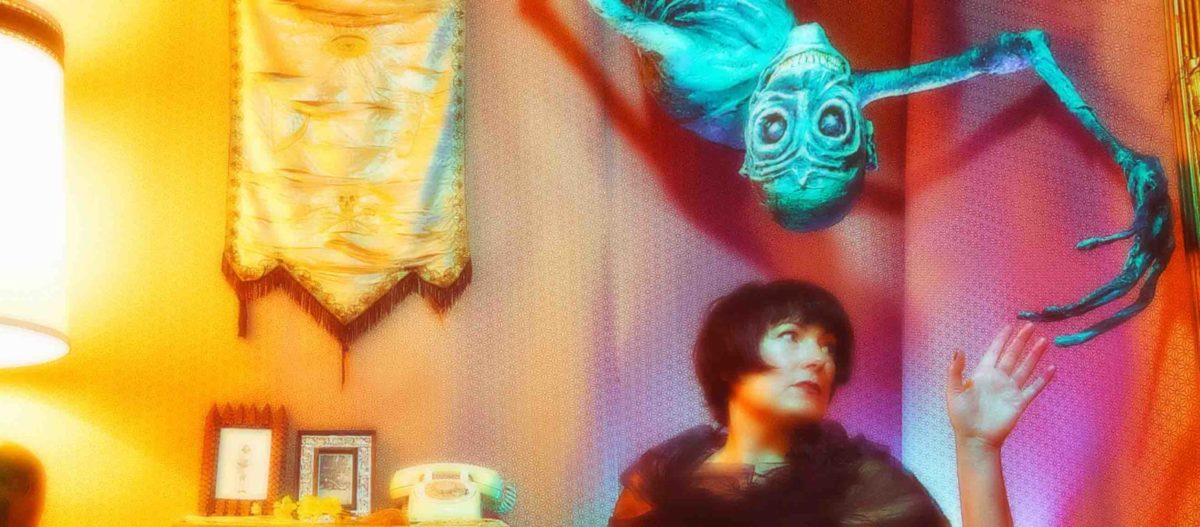
I was first left alone to babysit my two young sisters when I was 6 years old. As I had no idea what I was doing and in fact needed my very own babysitter, I turned to the only source of comfort in our house: the television. Early on, my TV-sitter of choice was Gilligan’s Island. Those re-runs kept me company and helped me laugh. I confess I was little-kid-crushing on “Gilligan,” but the female characters were my favorites. In particular, I felt attached to “Lovey Howell.” I don’t know why I had such affection for Natalie Schafer’s character. Maybe it was her age or her doting nature. I also couldn’t have described my TV friends as such back then, but I now know I was experiencing grace in a box.
My home life was less than idyllic. Through ugly repetition, I learned early how to survive. I was a smart kid and a good student, so of course I learned. But that didn’t mean I always practiced what I learned.
Like the time I broke my two front permanent teeth. I was playing with my sister and the dog in the driveway on Spencer Street. The dog was enjoying the playing as much as us, so when she jumped up on my back, she didn’t mean any harm. That dog did not intend to send my head flying toward the parked car’s bumper. The dog didn’t mean for me to break my front teeth.
I knew right then that I was in trouble. I scoured the rough gravel driveway, desperate to find the pieces of teeth that my tongue told me were missing. I hoped that if I could find the broken teeth, I could somehow repair the damage and lessen the punishment. Though I searched frantically, I failed, and never did find my tooth bits.
I pulled my small, 8-year old frame up as tall as I could muster and slowly made my way into the house. I walked up to my mother and told her there had been an accident and I’d broken my teeth. She looked at my mouth, tears filled her eyes, and she yelled, “Well, I hope you’re happy! You’ve ruined your teeth! I have a headache!” And with that, she stormed off to her room and we kids were told to tend to her until she felt better. She never asked if I was okay.
One of my teeth had broken close enough to the gum to leave the pulp exposed. This is the small sac that holds nerves and blood, and mine resembled an individual piece of red grapefruit pulp. I tried to resist, but I kept running my tongue over it, gently, as it was such a new sensation. My mouth was no longer familiar. Still, I did try to ignore it while also favoring it so as to prevent further injury. That favoring has endured, by the way: to this day, I press my tongue to the back of my front teeth when drinking cold beverages, in an attempt to lessen the shock of the frigid temperature hitting my tooth’s exposed nerve. But I digress… After a day or two, I was taken to the dentist (for the first time ever) and the doctor immediately took care of me and my broken teeth. He was very concerned about the exposed nerve sac, and worried about the pain I was enduring. The appointment didn’t take long. The dentist formed concrete molds to my existing broken teeth and that was that. I soon returned to my already-in-progress school day with two new false teeth in the front of my mouth.
While I had been injured, my mother had become the injured party. And while I didn’t receive mothering from her, I did know where to turn: “Olivia Walton.” On The Waltons I watched “Liv” tend to skinned knees and all manner of injuries again and again. Each time, her concern was wholly for her children. She never made it about her, and the genuine love and affection bestowed upon her kids seemed – to me – to serve as a sort of healing balm in my own life. The kids on the show were definitely a draw (I had a new crush on “John-Boy”), but for me, watching The Waltons was all about the parents. I counted on them to show me what parenting was supposed to look like. And they did.
Years later, I was crying in my bedroom, broken-hearted over a boy. I was 13 and it was the most painful heartache I’d known. When my mother came into my room, I knew better than to tell her what was going on. I tried, Lord knows I tried. She simply wouldn’t accept my repeated protests that nothing was wrong. When I finally gave in and told her why I was sobbing, she threw her head back and laughed. She said, “You don’t know what love is! You don’t know what it means to feel heart-broken!” She left my room, still laughing and smiling. I sat on my bed alone, feeling insult atop injury. I stayed there until it was time for Little House on the Prairie. I knew “Caroline Ingalls” wouldn’t judge her girls if they were feeling heartbreak. I knew she’d show them compassion and kindness. As I watched her being a good, hard-working mother, I blocked out my reality and focused instead on the goings on inside that “Little House.” And it helped.
When high school was ending for me, I applied to 2 colleges: Mizzou and the University of Georgia. My parents had written the application checks and had overseen my essays and application processes. I was accepted at both schools and was excited and ready to enter young adulthood. When my stepfather asked me to sit with him and talk about college, I was eager and energetic. We sat at the kitchen table. I thought my grin would crack my face. He said he and my mother had decided they wouldn’t help me go to college. They wouldn’t pay for any of it, and they wouldn’t sign any financial aid or loan documents. He told me the only way they’d help was if I stayed at home and went to community college. He then stood up and left the room.
I was stunned and couldn’t speak. The kitchen started to squeeze me and my brain felt tight. I went over what had just happened – again and again – thinking I’d missed something. But I hadn’t. It would take years for me to understand how my mother had manipulated that time in my life; how she had made sure I remained under her control for a little while longer. But at that moment, I didn’t understand anything. I felt small and invalidated.
A few years later, I watched “Clair Huxtable” send daughter “Denise” off to college on an episode of The Cosby Show. “Clair” told “Denise” how much she’d miss her, how much she loved her. And she told her TV daughter how much she liked her, just for being herself. After watching that night’s show, I got myself ready for the next day’s classes. Community college wasn’t my dream. Nor was living at home. I fell asleep thinking about “Clair Huxtable” and what a great mom she was. And though her loving words had been directed at another character, I took them to heart: my TV mom liked me, just for being myself. The world wasn’t spinning the way I’d hoped. But it was spinning. And a change was surely gonna come.
Don’t get me wrong – my TV moms weren’t a cure-all or a real solution to the problems in my life. And they were only available during the short time their shows aired. I couldn’t interact with them, nor could I count on them on a daily basis. But I did learn from them. And I was shown examples of what mothers could be. It didn’t matter that they were fake mothers. I mean, my mother was real but she wasn’t a real mom. In my mind, TV moms counted. A lot. And they still do.
It may very well hold that I live the rest of my life searching for mother-figures. I just don’t know. I am getting better about mothering myself, however, and for that I’m grateful. I’m also grateful to the women who bring their life-experience and wisdom to my world. And to my TV moms, for keeping me company for so many years. One episode at a time.
